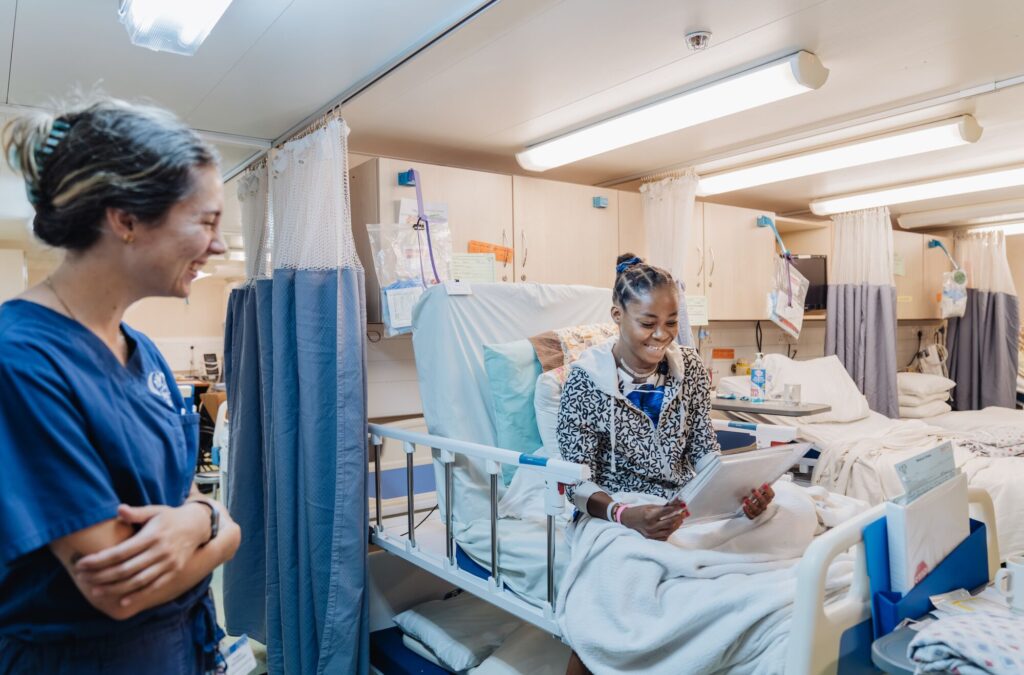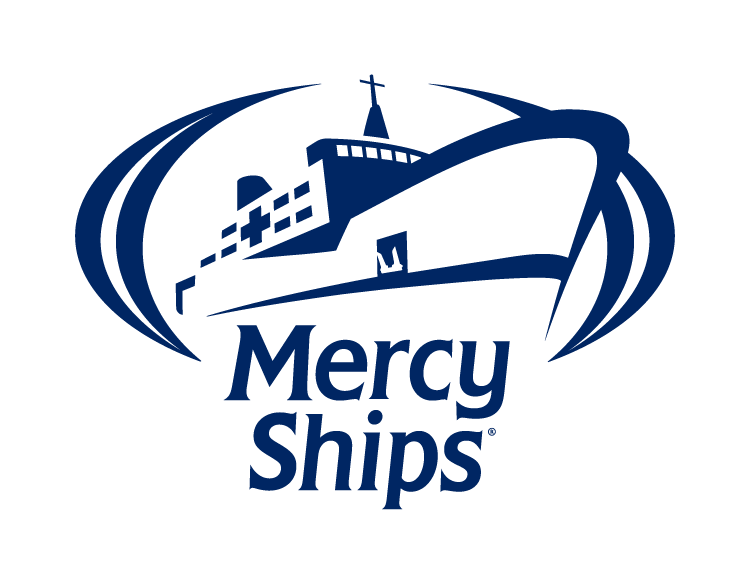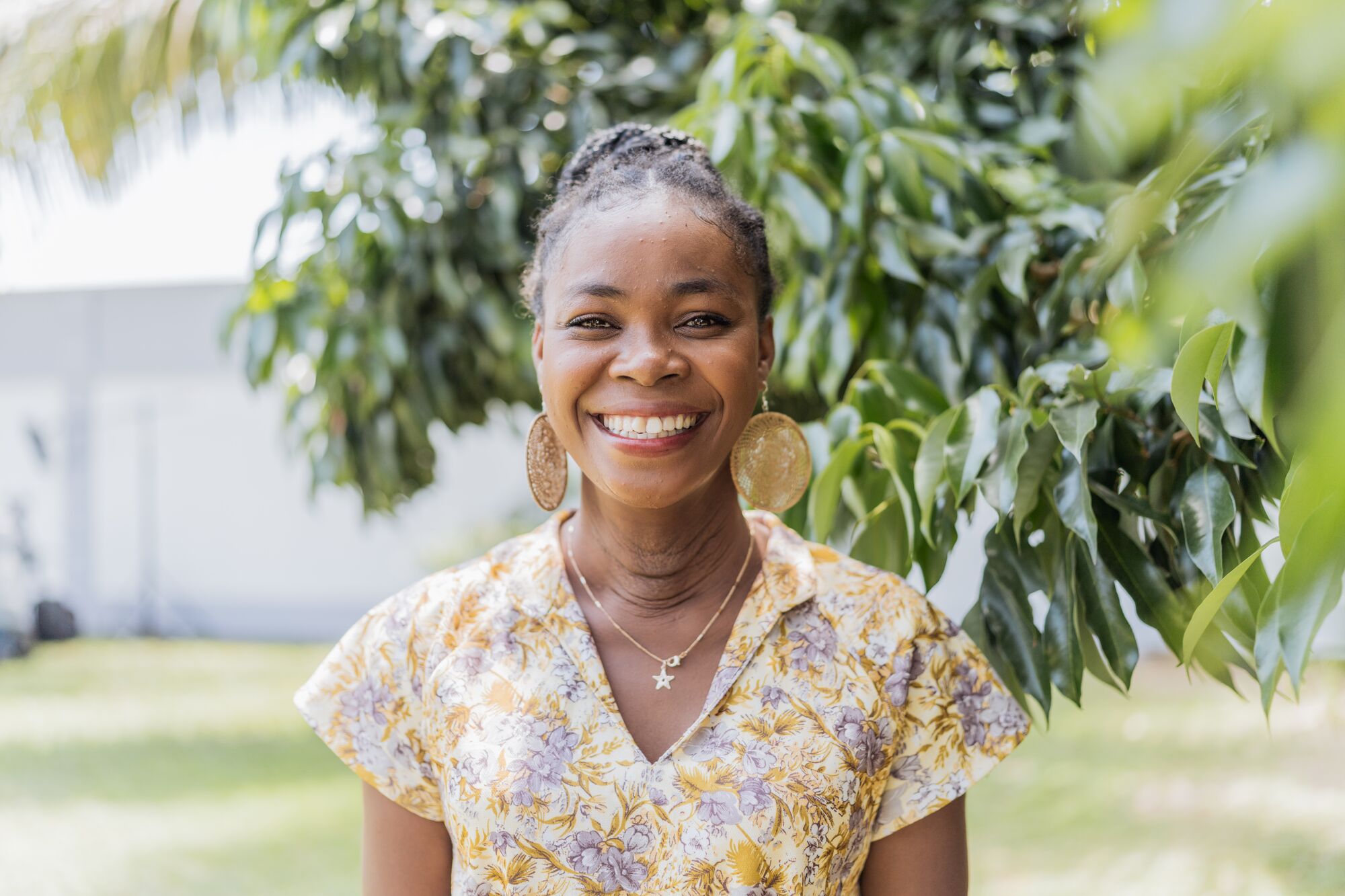Harimalala was just 12 years old when her life came to an unexpected pause. The only girl among five siblings, she was a student in Madagascar with dreams and hopes of reaching her full potential.
Now, at 24, she recalls, “When I was still studying, I was very healthy. I didn’t have this condition yet.”
What began as a sore throat soon became a life-threatening growth – confining Harimalala to a life of pain and shame for the next 12 years.
“I took medicines, but… it kept growing even more. I even went to a traditional healer, but it kept growing,” she said.
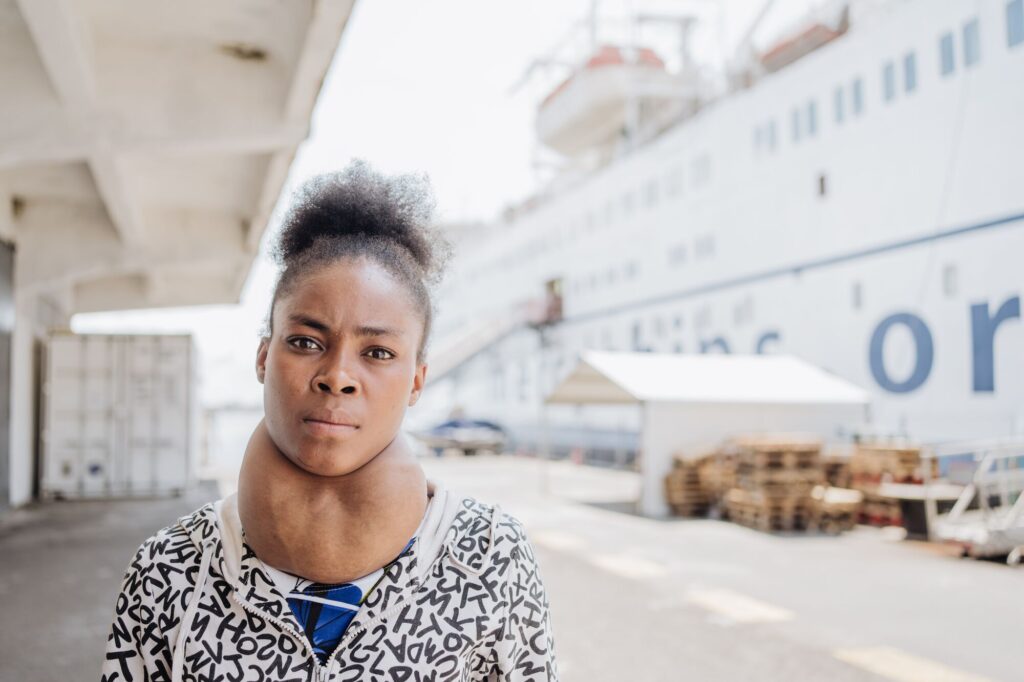
The Burden of a Goiter
The large growth eventually became impossible to ignore. Fraught with shame, Harimalala dropped out of school and wrapped a scarf around her neck. Her condition was deteriorating her physical, emotional, and social well-being.
“I am unable to go fetch water or carry heavy things. I can’t bend down or run,” she shared prior to surgery.
Dr. AJ Collins has been managing the thyroid surgery program with Mercy Ships for 17 years and would lead the team to perform Harimalala’s surgery. He described her condition as, “A typical but massive multinodular goiter, which is the most common type of thyroid pathology worldwide.”
“It tends to compress the airway so breathing and talking and exercising become very difficult. It can affect swallowing and make it hard to swallow your food. Those problems just become worse until they get to critical point, which I think for her, was close.”
Additionally, Harimalala faced bigger challenges. “I feel ashamed with people and don’t dare go to church because people stare at me. People gossip, they talk – they say I have a big thing on my neck,” she expressed.
As Harimalala was coming to terms with her new reality, it suddenly dawned on her that she was being left behind. With her peers already starting families of their own, she came to the conclusion that no one wanted her with this condition.
“I can’t imagine what that’s like – seeing all the young people around you get on with their lives and do things like getting married and having families or other things,” said Dr. Collins, empathetically. “She had a deep feeling that wasn’t going to happen for her.”
Harimalala feared that her condition was life-threatening, but affordable surgery was inaccessible. Approximately 93% of sub-Saharan Africa lacks access to safe, affordable, and timely surgical care.
“People do seem to wait very long periods of time for this sort of surgery…there’s often no practical hope of having that surgery in their own environment,” said Dr. Collins.
However, Harimalala had heard about Mercy Ships 10 years ago and eagerly hoped that the hospital ship would return to Madagascar.
Mercy Ships Provides Hope for Harimalala
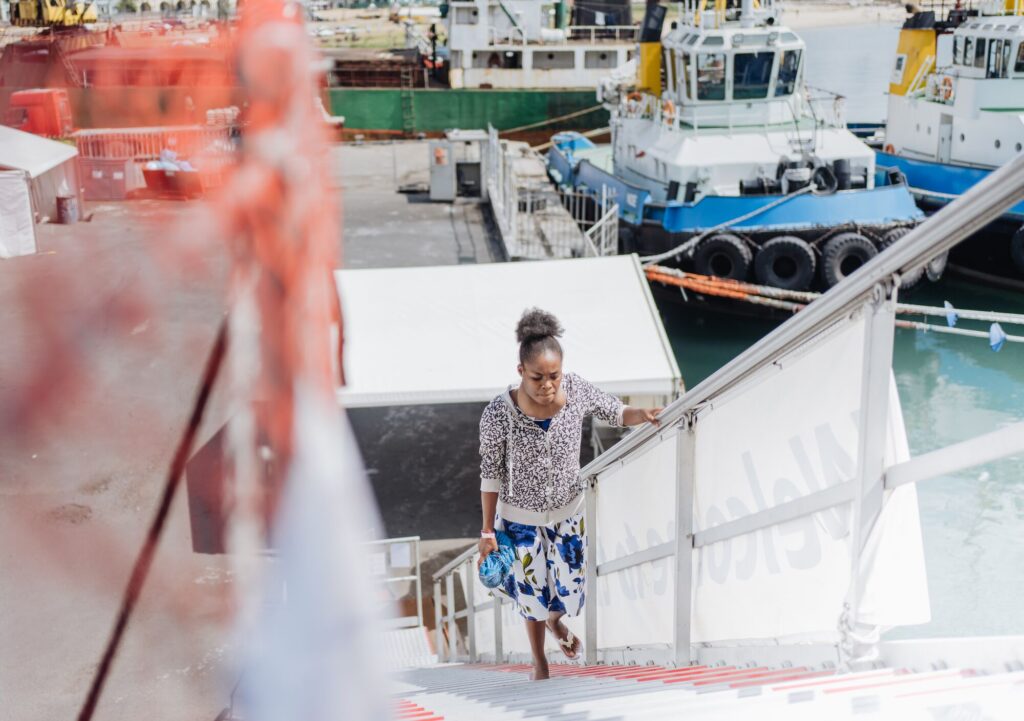
When volunteers from the Africa Mercy® first met Harimalala, they immediately knew she couldn’t go home until she’d had surgery.
“I received some emails from the ship staff that the narrowing of her airway was quite critical, and she was finding it very difficult to breathe,” said Dr. Collins. “She stayed at the Hope Center for several months with treatment aimed at reducing the goiter a little until we could prepare for the surgery.”
Harimalala’s first encounter with Mercy Ships’ Australian preoperative clinical supervisor Maddy Hartung left quite an impression on her.
“She was such an advocate for herself from the very beginning,” said Maddy. “She knew that we might have been her only hope for surgery, and she wanted to make sure that she gave it every possibility that she could be seen.”
Harimalala’s courage inspired the volunteer medical staff to join her in prayer as she awaited her surgery day.
A Life-Changing Surgery
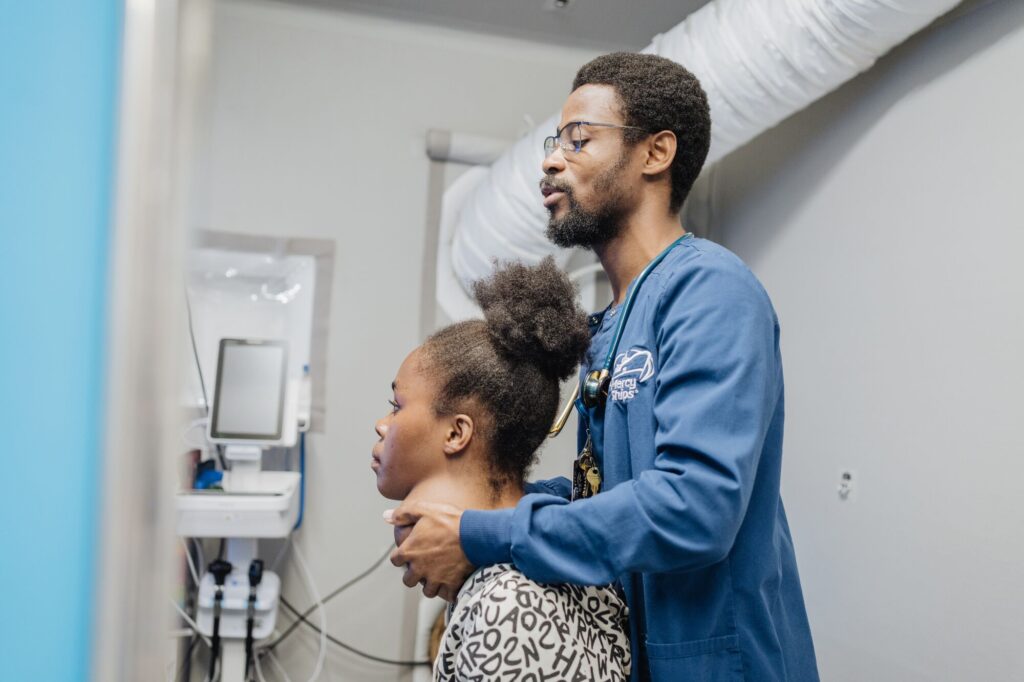
On her surgery day, the volunteer medical staff walked Harimalala into the operating room after a prayer, then waited in the OR reception reflecting on her journey.
“I’m just so grateful for her. Our God is so faithful. This whole journey, we did it all together and it all comes in places now,” said Cobie Waasdorp, preoperative team leader from the Netherlands.
The surgical team consisted of Dr. Collins and two assistants, including a participant of Mercy Ships’ Education, Advocacy, and Training (ETA) program. There were also two scrub nurses and three anesthetists.
“It’s very labor intensive, isn’t it? But teamwork makes difficult cases manageable,” said Dr. Collins. “These very large super-sized goiters present some difficulties in that they’re highly vascular, meaning they’ll bleed a lot, but we’re prepared for that.”
After four hours, Harimalala was finally freed from the 1.35-kilogram goiter.
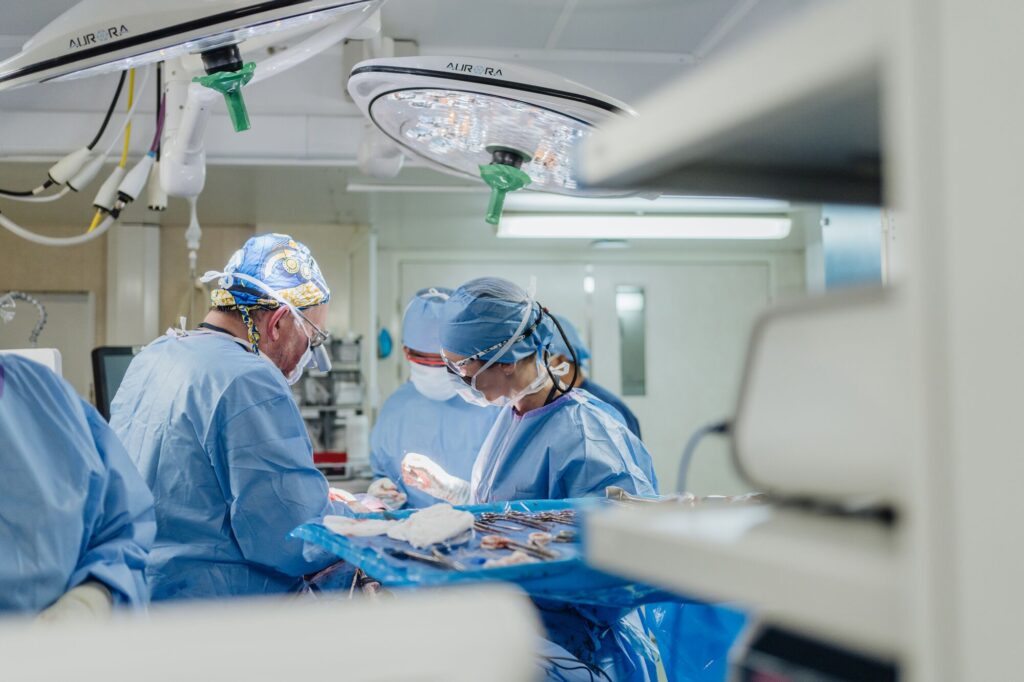
New Beginnings for a Brighter Future
After a successful surgery, volunteers said goodbye to Harimalala with notes that each of them had written.
As for Harimalala, she was no longer ashamed of how she looked or what people thought of her.
“I really like necklaces, but I had goiter so I couldn’t wear it but now I can,” she said, smiling broadly. “I feel like I’ve entered a new life because the previous one, it was uncertain whether I would die or live”
Thanks to Mercy Ships, her life is flooded with newness and hope for the future.
“I can get married and have children now because the growth is gone,” she said.
Dr. Collins is also optimistic. “I can’t see why that won’t be possible for her in the end,” he said. “Good on you, Harimalala!”
